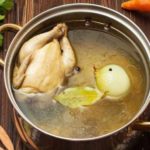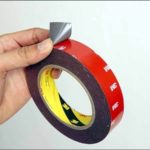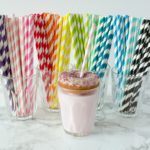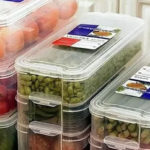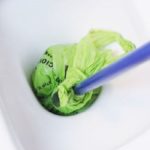Food wraps are considered a necessary item in every kitchen. However, they are usually made of plastic material. Have you ever thought that using them improperly can release plasticizers and other harmful substances? There are many concerns about food wraps, and the question is, how to use them safely?
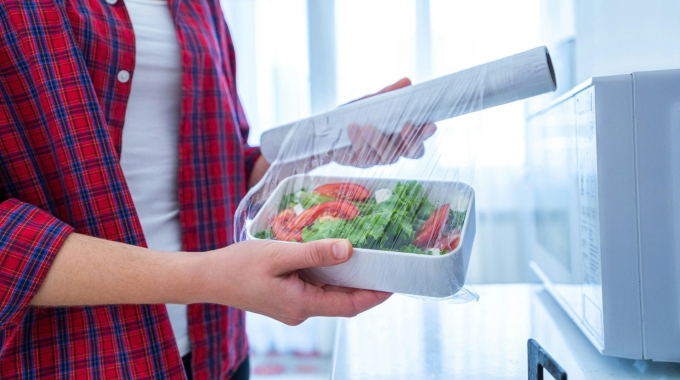
In today’s busy life, people often put food in the microwave to heat it up quickly and eat it directly. Some even use food wraps to cover the food container. In the market, the commonly used materials for food wraps are classified into 4 types, each with a different heat resistance:
– Polyethylene (PE): Heat resistance temperature of 70-90 degrees Celsius.
– Polyvinyl chloride (PVC): Heat resistance temperature of 60-80 degrees Celsius.
– Polyvinylidene chloride (PVDC): Heat resistance temperature of 110 degrees Celsius.
– Polymethylpentene (PMP): Heat resistance temperature of 140-160 degrees Celsius.
Can food wraps be safely used to store hot food since they can withstand heat? The answer is: No! The heat resistance temperature can only be used as a reference, and whether the plasticizers dissolve from the plastic wrap depends on the actual situation.
Taiwanese toxicologist Chiu Ming-wei has mentioned that most of the commonly used plastic wraps nowadays are made of PVC. Many studies have also indicated that PVC plastic wraps will release plasticizers at high temperatures. While plasticizers are not very toxic and do not cause cancer, they can still be dangerous. Excessive exposure to plasticizers can not only hinder the development of male organs but also lead to endocrine disorders, infertility in women, and delayed neurological development.
Therefore, since July 2023, Taiwan has banned the use of PVC in food packaging materials. Hence, never heat food while it is still wrapped in plastic wrap! However, Chiu Ming-wei also noted that except for PVC, not all types of food wraps contain plasticizers.
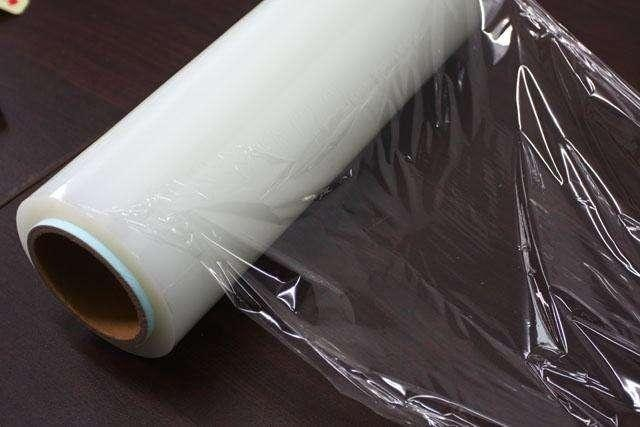
4 Safe Tips for Using Food Wraps
1. Avoid contact with soup or fatty foods
As plasticizers can easily seep out when in contact with oil, food wraps should be kept away from soups and fatty foods to reduce the risk of contamination.
2. Avoid contact with hot food
Whether made of PVC or not, food wraps are always made of plastic. Therefore, they should be kept away from hot food and should not be used for cooking.
3. Avoid highly acidic foods
Highly acidic foods can corrode plastic and increase the risk of plasticizers leaking.
4. Avoid direct contact with food
It is recommended to place the food deeper into the container and use the food wrap to cover only the surface of the container without direct contact with the food.
Source: Phụ nữ mới
Secure, Environmentally-Friendly Kitchen Products
As awareness of environmental pollution continues to rise, the demand for eco-friendly products is also increasing. These items not only provide benefit to the planet, but they can also contribute to improved health and well-being. Consequently, these products have become a key component of the green movement.
























